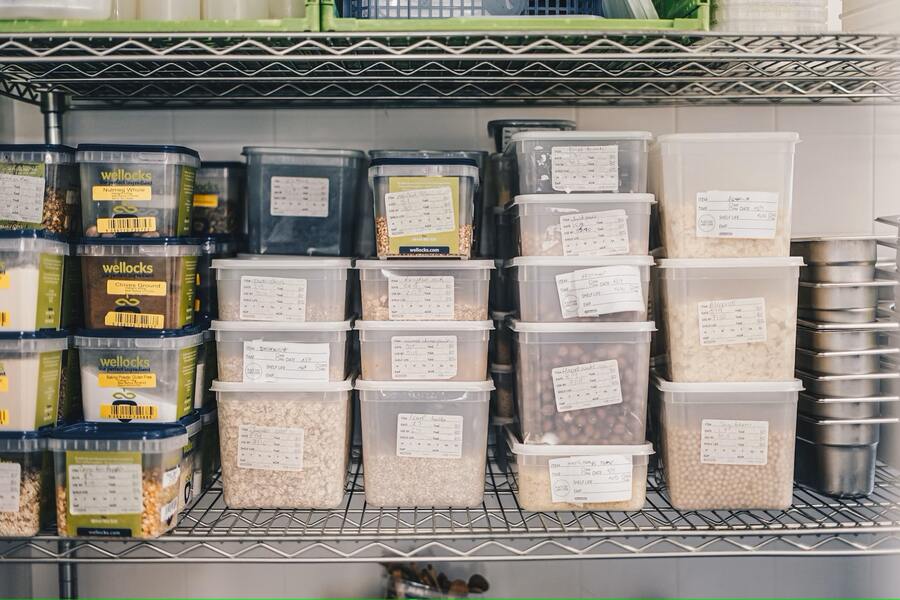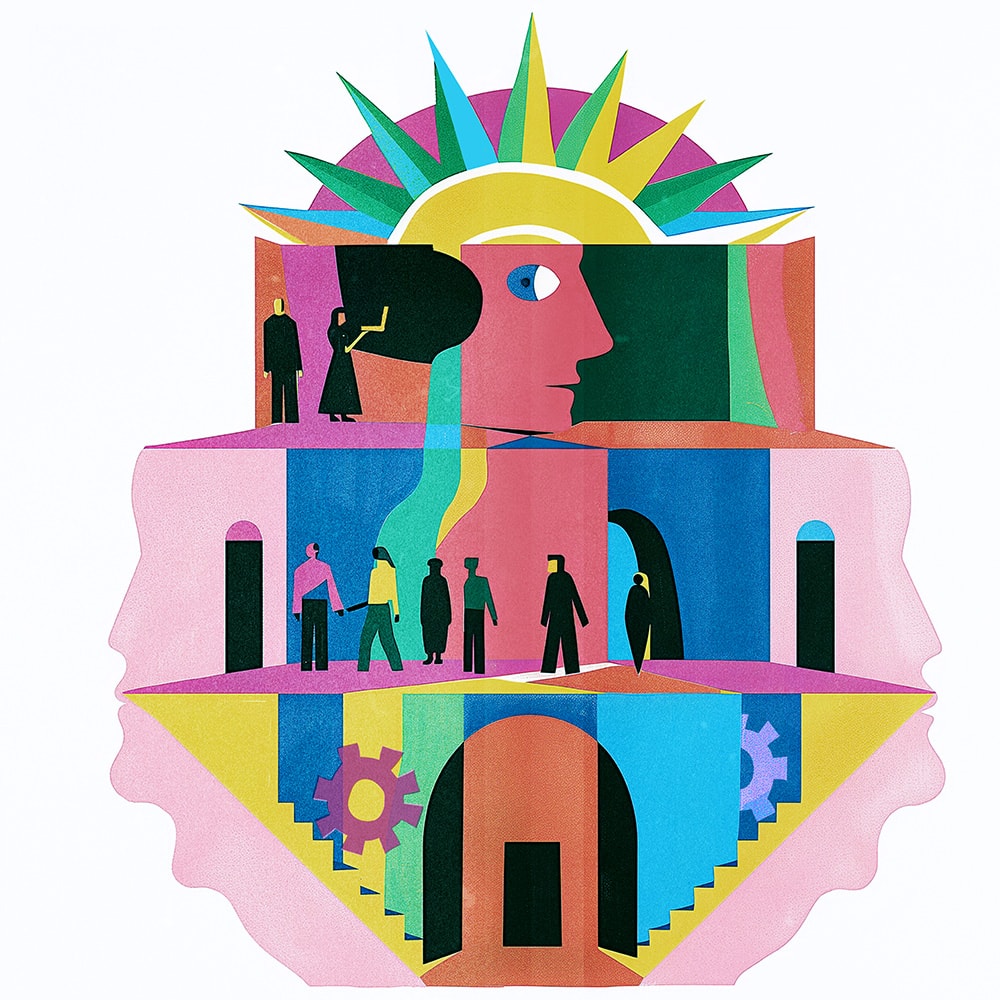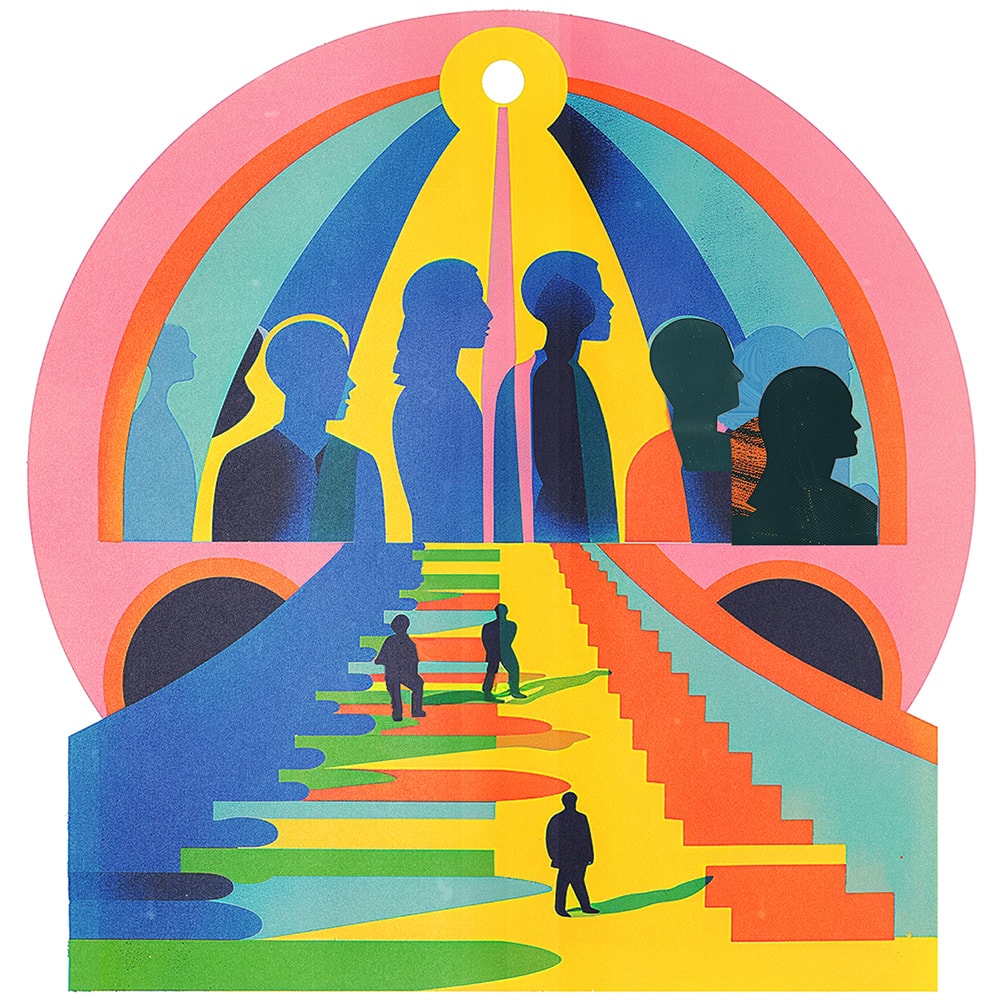Poet and author Gwendolyn Brooks wrote in her poem “Paul Robeson”:
We are each other’s
harvest:
we are each other’s
business:
we are each other’s
magnitude and bond.
Within our theatre field, workers struggle with food insecurity and meeting basic needs. Even when hired on desirable contracts or in jobs with coveted titles, making ends meet can be a challenge. An actor shared with me that after payroll taxes, rent, agent and manager commissions, and union dues, his respectable weekly paycheck from a world-class League of Resident Theaters (LORT) theatre left him with little money for groceries, and there was no way he could save for the future. Another actor told me that she put off health care to pay for groceries.
Nearly five years ago, Stage Directors and Choreographers Society (SDC) published its Next Stage research report, which found the average mid-career SDC member earns just $17,000 annually from directing contracts. Yet health care and debt costs alone are often more than $17,000 per year for the average mid-career member. SDC found that even artists who sign multiple contracts a year still struggle financially. Clearly, the economics of theatremaking are insufficient.
But there are ways we can help each other with tools rooted in solidarity economy (SE). We currently live in an economy that prioritizes maximizing financial profit. Even for those companies that struggle to survive in this post-Covid-lockdown economy, a primary measure of success is maximizing income for the institution and boosting leadership salaries to be “competitive,” leaving others behind. (This is also true of many nonprofits.) The late Václav Havel, a playwright and the first president of the Czech Republic from 1993 to 2003, warned that both communism and capitalism strip people of their humanity as they force us to prioritize the needs of the state or the corporation, respectively.
By contrast, solidarity economy prioritizes and maximizes social profit. Instead of prioritizing dollars, SE prioritizes people and the planet. Instead of extracting resources and exploiting labor, the core of SE is cooperation and regeneration. Rob Hopkins, co-founder of Transition Network and author of From What Is to What If: Unleashing the Power of Imagination to Create the Future We Want, is often quoted in SE circles. “If we wait for the governments, it’ll be too little, too late,” Hopkins writes. “If we act as individuals, it’ll be too little. But if we act as communities, it might just be enough, just in time.” Within the American theatre, we can act as a community and help one another personally, professionally, and civically.
Community Fridge or Pantry
One way we can tackle food insecurity is through community fridges and pantries. We can all do this right now, in our rehearsal rooms, classrooms, offices, and/or neighborhoods. All you need to set up a community pantry is to gather some provisions, put them on a table or shelf, and post a sign that says, “Take What You Need, Leave What You Can.” Beyond food, your community pantry can also include toiletries, household supplies, and anything else you think someone in your community can use.
This may sound like a kind of charity, but it’s not. It is solidarity, which is premised on the recognition that we are in this together. At any time in our lives, any of us may have surplus funds, time, or expertise; at other times we might experience need. It is essential that we always participate in the solidarity circle. There should be no shame in taking what you need. And by leaving what we can, we recognize that even when we have needs, we can still look out for the next person. Solidarity recognizes that by sharing resources and nourishing one another, we build healthier people, and healthier people build healthier communities.
(A note about community fridges: They can be a little complicated to set up, as they require electrical power and raise concerns about liability. Freedge.org provides legal guides and other resources for setting up a fridge as well as a map of existing community fridges.)
Time Bank
Time banking is another practice of solidarity economy predicated on the circle of giving. Instead of leaving or taking something, you treat time and expertise as currencies to be given and received. Unlike a barter system, in which people exchange goods one-to-one, in a time bank, people exchange one-to-many.
For example, imagine a time bank hosted by a theatre organization, with staff, artists, board members, and community members participating. Perhaps a staff carpenter offers “hanging artwork” on the exchange; someone takes them up on it. If it takes the carpenter one hour, they earn one time credit. Then maybe that carpenter needs someone to walk their dog while they are in tech. They can exchange their time credit for that task, and the person who walked their dog needs help preparing their tax returns, and a board member who is a CPA helps with that task, and so on. Because one hour equals one hour in a time bank, regardless of the work, everyone’s time is equal. What’s more, time banks recognize that everyone has gifts and expertise to share.
Hourworld.org and timebanks.org both offer resources and software to start or join an existing time bank.
Pop-Up Needs and Offers
In a virtual learning circle where we study and discuss solidarity economy, we read about a concept Vijay Mathew and P. Carl proposed back in 2013 for the theatre: Culture Coin, a global, commons-based alternative economy and complementary currency, which matches unmet needs with under-utilized resources, like a time bank.
Building upon their idea, we experimented with pop-up virtual needs and offers exchanges. In November 2023, participants exchanged copy editing, grants research, advice on boards and governance, introductions to others in the theatre, Canva tips, marathon tips, and easy recipes, among other things.
At TCG’s 2024 conference in Chicago, Kristen van Ginhoven, Elena Velasco, and Gail Lopes led in-person and virtual needs and offers exchange sessions, where participants offered help navigating health and life insurance, values-based budget review, coaching, and more. We will continue to offer free virtual pop-up needs and offers exchanges. (Contact me at the email below to join a future pop-up.)
Worker Cooperative
While community pantries and pop-up exchanges can aid in meeting some of our basic needs outside the currency of money, a challenge remains creating systems of employment in the theatre that prioritize people and the planet. Some artists are experimenting with worker-owned cooperatives, another practice of solidarity economy. In this model, workers own the business, participate in its financial success based on their labor contribution, and have representation on the board of directors. In addition, worker-owners often manage day-to-day operations through various management structures.
The Obvious Agency, for instance, is a worker-owned cooperative and performance company dedicated to the creation of an engaging, democratic, and liberatory cultural ecosystem. In states where there are cooperative incorporation statutes, these businesses incorporate as such. In other states, they may incorporate as S or C corporations or LLCs, and they often operate a fee-for-service branch that focuses on generating revenue and running like a for-profit business.
It’s useful to note that there are pathways for traditional nonprofit theatre organizations to transition into worker cooperatives or worker-directed nonprofits. Obvious Agency, the United States Federation of Worker Cooperatives, and Sustainable Economies Law Center offer resources, workshops, and consulting services in these areas.
Act as a Community
Competition is woven throughout our industry. Actors compete for roles; freelancers compete for jobs; organizations compete for dollars. It is easy to forget that together we all make up the theatre community. Together we can shape the theatre economy. In addition to the examples offered in this essay, solidarity economy activities include community gardens, community land trusts, learning circles, local currencies, mutual aid, reparations, seed libraries, tool libraries, and more. These are initial opportunities on the road to deeper change in the economics of theatremaking.
Just as we do when we collaborate onstage, we can also act as a community offstage and help one another thrive.
Seema Sueko-Low (she/her) is a freelance theatre artist, consultant, and co-curator with DNAWORKS. seemasue@gmail.com
RELATED CONTENT
Support American Theatre: a just and thriving theatre ecology begins with information for all. Please join us in this mission by joining TCG, which entitles you to copies of our quarterly print magazine and helps support a long legacy of quality nonprofit arts journalism.






